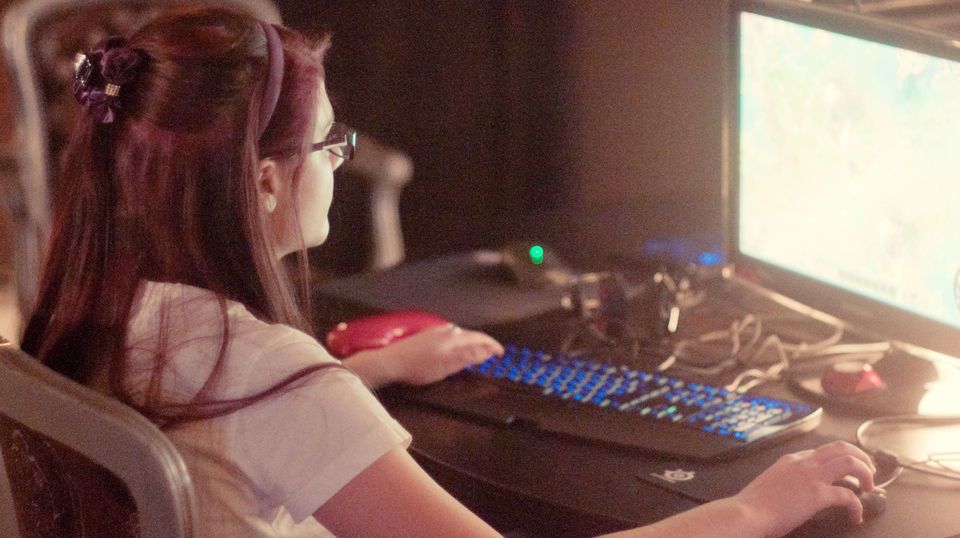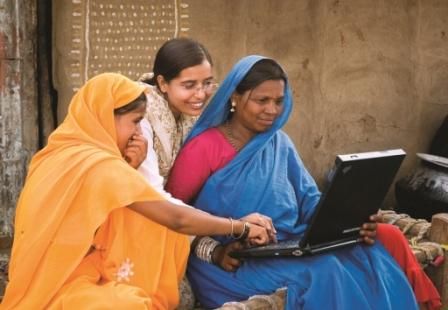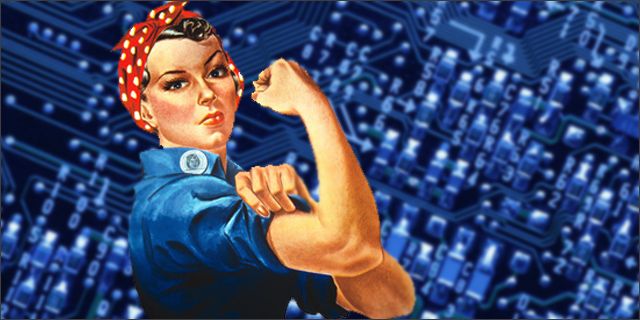
If you're a Twitter user or a frequent visitor to any number of enthusiast press outlets you will have noticed a storm roiling between some gamers, writers, and developers over the past two weeks. In the sea of discussions that have occurred thus far, most comments and actions have been disappointing at best, illegal and dangerous at worst. Some writers and developers have been harassed to the point where a few have decided to leave the industry, and some have had to contact the F.B.I. and evacuate their families from their homes to deal with actionable threats.
As of today, there are at least two Twitter hashtags, #gamergate and #notyourshield, that have been co-opted by countless people using them each in as many ways as there are people involved, each offering a limited amount of solidarity in message and purpose. Some internet folks have resorted to hacking, harassment, and threats, while not much better can be said about some writers and industry folks. I have yet to see a case of a writer or developer hacking someone or threatening the life of a community member in this debacle, but some have clearly tried to fight fire with fire, to no avail.
What is easy to gleam by now is that many sides, of what perhaps could've been a reasonable debate at some point, have turned to cynicism, hatred, and vitriol, and all of this is still occurring.
Why should you care? Over the past few years gaming controversies have come and gone ad nauseum, often exiting the limelight after their internet-lifetime (typically one week) is done, and many have tended to decry the greed of publishers, the cup size of a game's heroine, or the unsatisfactory (as some thought) ending of a beloved trilogy.
Much of the fighting over the past two weeks doesn't seem to relate at all with a particular video game, a depiction of a woman in a video game, or a publisher's business practices, but instead deals more with the relationships writers have with game developers, and with some writers using feminism in a way that bashes men through chauvinism instead of promoting equality. These issues are more deeply rooted in culture and industry structure, in such ways that they keep coming up over and over, until now the "debate" is raging without any relative peace in sight.
Zoe Quinn, creator of Depression Quest, was alleged to have slept with a games writer, so some very vocal people took that hearsay as fact, connected dots along the lines of, "She's chummy with writers so that they'll highlight her game, and review it favorably."
Quinn was subsequently hacked, harassed, and threatened to say the least. Regardless of what you think of Depression Quest, and even if you passionately disagree with Zoe on any given issue, what's happened to Quinn is a witch hunt. People made up their minds based on hearsay, assumed a person guilty until proven innocent, and took up their available tools to wreck her life in any tangible way they could. Nobody has won and gaming isn't any better for it.

Somewhere in that particular madness, if you're a reasonable person, you could ask, "What are writer-developer relationships really like? If they're pretty chummy, have they always been that way?" Another important question you should ask is, "What's the difference between a journalist and an enthusiast writer?"
There's not a great deal of journalism that occurs in the gaming press. Games writing is mostly done by enthusiasts, it's always been that way, and it's still that way. Enthusiast writers don't investigate a developer or publisher and uncover hot release dates and trailers, that's not a journalistic relationship. Journalists tend to critique, investigate, say things that are uncomfortable and personal (including social critiques you may or may not agree with), and at some point perhaps make a game, a person, or a company, look bad, and they need some sort of journalistic standards and infrastructure to not only adhere to but mostly to protect them, allowing them to uncover the dirt they seek, and publish that work.
We certainly get some pieces in games media that can be considered journalism, but the stuff most of us read is the result of a relationship between enthusiasts and their sources, and in order for that kind of stuff to happen, they all have to be a little bit chummy. And the people who occasionally do journalistic pieces likely tend to also do enthusiast writing, or work in close proximity with people who do. We can demand some more transparency about that process and those relationships, but first we should be clear about what kinds of writing we are really consuming, and what we should really expect from it.
Find writers you like and support them, even if you don't agree with them on every issue. If they're good, tell them so and engage them.

There's some gamers out there who feel like many feminist writers have resorted to talking down to their audience, and have fallen onto practices of bashing males, writing click-bait propaganda, lumping all gamers into a group and stereotyping them all as misogynistic, all while forgetting the fact that feminism is suppose to be about equality and empathy. Understandably, many readers don't appreciate the condescension, but some gamers obviously respond to these pieces through vitriol and non-constructive behavior of their own. The only insight I could offer would be that, when someone is being a jerk and you act like a jerk back, there are then two jerks in the room and nothing has improved. That goes for both parties.
If you really don't like a writer and you think they're being terrible, tell them in a way that isn't a knee-jerk rant, a threat, or a personal data hack, and then move on with your life. Are video game opinions something we really want to hate people for? If the people around you are being unreasonable, take the high road and be decent instead of fueling this same cycle of vitriol. We can't change the whole games industry, and certainly not the whole internet, but we can all take a little responsibility for how we act on it, and maybe some day it can be a little less imperfect.
Separate from the Quinn-witch-hunt, but still heaped on top of all this, some people can't stand Anita Sarkeesian. She gets daily harassment at this point, but she's been another big target of the past two weeks despite, to my knowledge, having nothing to do with #gamergate or #imnotyourshield.
To the topic of Sarkeesian, the video series she has been developing in which she critiques the portrayals of women in games has been a lightning rod for discussion. Some of those reactions being salient, some of it less so, and the rest is usually harassment. I'm not sure how robust her research methodology is like but at the end of the day she's simply talking about video games, voicing opinions, and giving critiques that certainly aren't extreme. People treat her like this is Cold War era America and Sarkeesian has defected to the commie reds. People act as if we all need to draw lines in the sand and be pro or anti feminist. This tribalism is a common theme you can currently see on many sides not just in the reactions to her work, but also in the gamergate issue. Everybody is making a primal exercise of it, drawing lines in the sand, and making it binary.
I've watched Sarkeesian's first few presentations, and her points aren't terribly strong at times, and the issues she's bringing to light have occasionally been expressed better elsewhere, even on places like Kotaku and Polygon, but this work is still valuable to some degree. Even if I don't agree with everything Anita says, it doesn't mean women's issues and points-of-view are irrelevant.
More importantly, it doesn't mean that inequality and harassment in the game industry don't exist. Inequality isn't something you have to believe in, it's occurring all the time and you need only listen to women affected by it to get a glimpse of it. I still support Anita Sarkeesian's efforts, even if it's mostly in spirit and only in the broadest sense.
People seem to find something particular to disagree with Sarkeesian on, something that relates to a specific critique in a video of hers, and they focus so hard on their differing opinion that they forget the larger context, they lose the whole point of the movement (not Anita's productions alone but what feminism in games is suppose to be all about); to shine light on inequalities, and raise awareness to where inclusiveness is lacking then try to improve it, and hopefully to inspire people at large to crave better stories, more diversity, and more games. It's okay for us all to disagree on finer points and discuss our own critiques and opinions, this doesn't have to be binary. But we shouldn't lose sight of the bigger picture, the fact that women are often treated terrible around the video game world, and some aspects of this hobby we love can be very unwelcoming.
Like I said, I don't often agree with Sarkeesian on finer points, but coming away from her videos I wasn't filled with anger, I didn't need retribution or vindication, and I didn't feel the urge to draw lines in the sand (neither does she). I was inspired to want better stories and better games. I wanted to see the hobby I love get even better. There are a lot of women who are afraid to pursue careers in this medium because of fears of harassment, condescension, isolation, and alienation. I want women to be attracted to the fields of game design, computer science, game art, writing, music, and everything involved with this hobby we love.

I'm going to paraphrase a comment that feminist author Christina Sommers made Thursday night on Twitter in regards to this week's controversy. We need to make video games and game design more inclusive to women, and I think that most gamers would agree. Gamers seem to support equality feminism. What they reject is today's male-bashing, propaganda driven, female chauvinism.
That comment helped me put the past two weeks into a context I could make sense of, more or less. To add my final thoughts to this situation, the fighting happening online is not only out of control and deplorable, but all the salient ideas and threads of reason have been left behind in its wake.
We should reboot the whole conversation and get back to the basics of each issue, because I sincerely believe there are highly valuable and worth-while goals to strive for in discussing industry transparency and especially feminism. There's a great mistrust between gamers and the press who are suppose to represent them, and both sides of that relationship are doing things to destroy that trust. Likewise there's a divide between gamers who feel like a political bias in feminism is becoming the only voice in the press, and some people on both sides of that debate are resorting to using pretty old-school political tactics, generalizing, dehumanizing the opposition, and only embracing voices that echo their own. In all these situations there are reasonable debates to have and benefits to possibly gain, but as we can see now many people on all sides have left the debates behind and fallen back on tribalism and politics.
We all love video games, and the majority of us are both passionate and reasonable. This doesn't have to be a war. No more lines in the sand.
(Update) - Forbes writer Erik Kain wrote a pretty fantastic piece giving insight to this issue, in much more detail. It's probably the most reasonable article I've seen on the past two weeks, definitely read it if you get the chance. Thank you to James for showing me that piece. I'll put the link right below.
GamerGate: A Closer Look At The Controversy Sweeping Video Games








 Thanks, Matt.
Thanks, Matt.
Comments